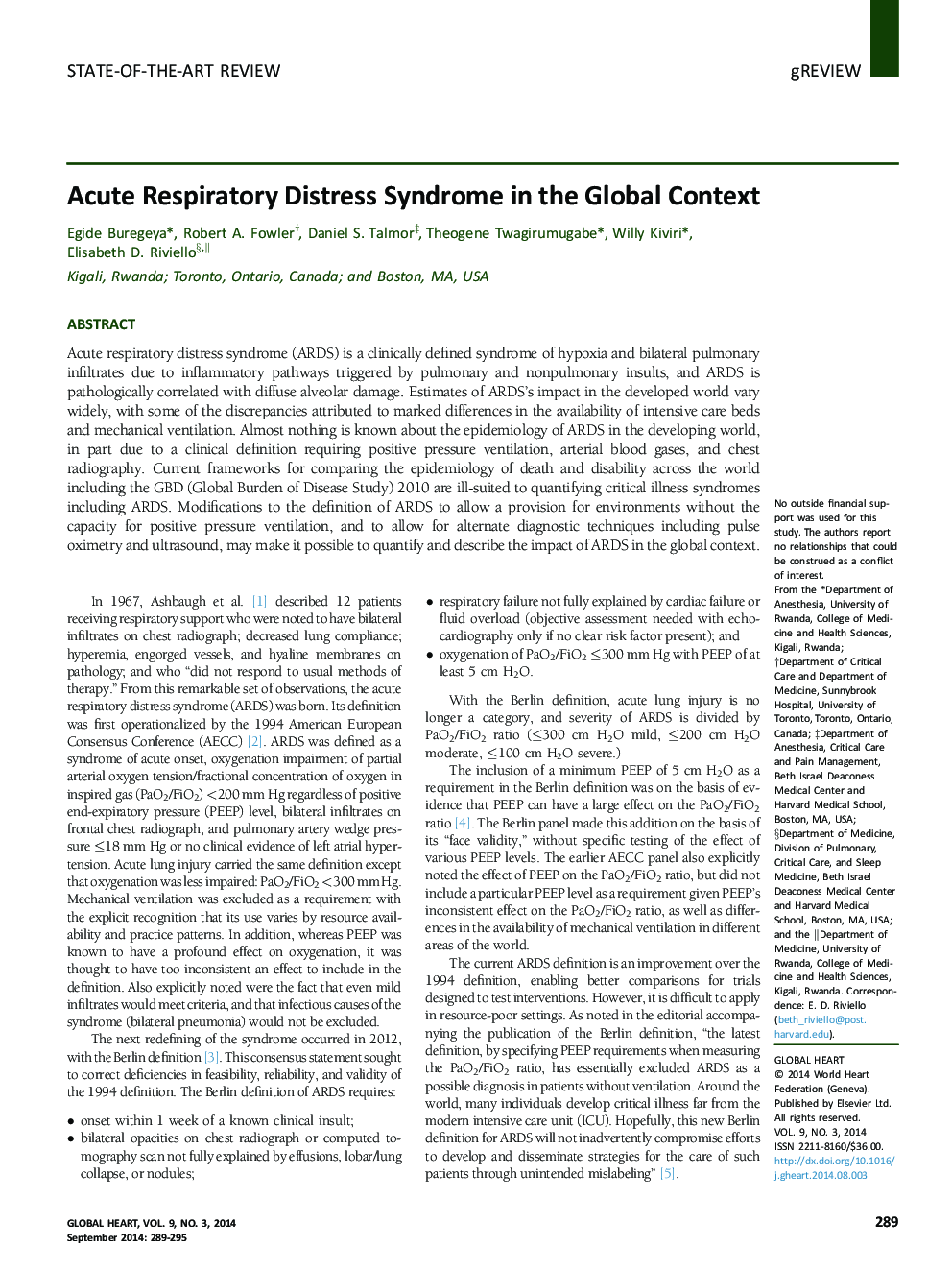| کد مقاله | کد نشریه | سال انتشار | مقاله انگلیسی | نسخه تمام متن |
|---|---|---|---|---|
| 2916433 | 1175632 | 2014 | 7 صفحه PDF | دانلود رایگان |
• Acute respiratory distress syndrome (ARDS) is a cause of acute respiratory failure resulting from a variety of clinical insults.
• ARDS incidence estimates represent a “treated incidence” of ventilated patients.
• A lack of resources in the developing world makes it difficult to quantify ARDS incidence.
• Alternate diagnostic methods may allow recognition of ARDS in resource-poor settings.
• Some effective interventions for ARDS are feasible in resource-poor settings.
Acute respiratory distress syndrome (ARDS) is a clinically defined syndrome of hypoxia and bilateral pulmonary infiltrates due to inflammatory pathways triggered by pulmonary and nonpulmonary insults, and ARDS is pathologically correlated with diffuse alveolar damage. Estimates of ARDS's impact in the developed world vary widely, with some of the discrepancies attributed to marked differences in the availability of intensive care beds and mechanical ventilation. Almost nothing is known about the epidemiology of ARDS in the developing world, in part due to a clinical definition requiring positive pressure ventilation, arterial blood gases, and chest radiography. Current frameworks for comparing the epidemiology of death and disability across the world including the GBD (Global Burden of Disease Study) 2010 are ill-suited to quantifying critical illness syndromes including ARDS. Modifications to the definition of ARDS to allow a provision for environments without the capacity for positive pressure ventilation, and to allow for alternate diagnostic techniques including pulse oximetry and ultrasound, may make it possible to quantify and describe the impact of ARDS in the global context.
Journal: Global Heart - Volume 9, Issue 3, September 2014, Pages 289–295
